Call: +44 (0) 207 193 7819
Email: info@gapafricaprojects.com
Call: +44 (0) 207 193 7819
Email: info@gapafricaprojects.com
Welgevonden Game Reserve is a 36000ha Big-5 Wildlife Reserve in the Waterberg, South Africa. Their conservation management practices are arguably some of the best in the world. This is largely due to management’s continued efforts in obtaining robust data on the ecological functioning of the Reserve, ensuring a thorough understanding of ecosystem dynamics within the protected wilderness area. This is where the Biomonitoring Programme comes in, responsible for the collection of research data and dedicated monitoring of fauna and flora on the reserve, the data is then analysed and processed by the Research Ecologist and used to inform management decisions. From monitoring herd dynamics and animal condition, to assessing the state and ongoing changes in the ecosystem, the programme offers participants a truly hands-on experience in the management of a world-class, reserve.
Project Type: Conservation & Research Project
Location: Welgevonden Game Reserve, Waterberg, Limpopo Province, South Africa.
Arrival/Departure: O.R. Tambo International Airport, Johannesburg
Accommodation: Safari Tents, Research Camp
Meals: Three meals per day included.
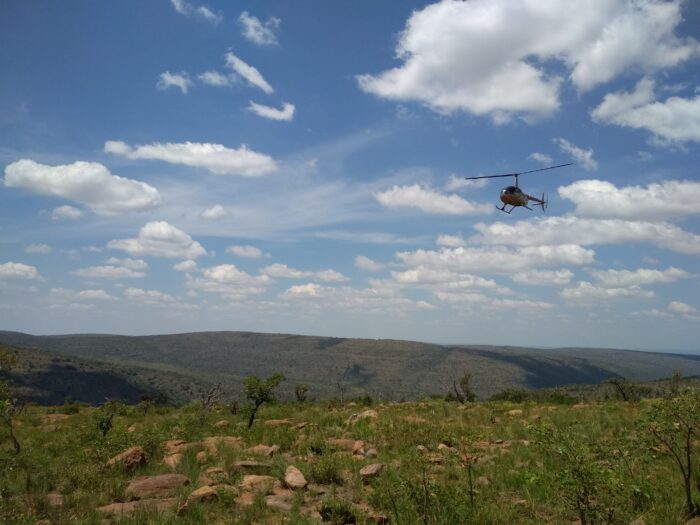
Welgevonden is home to over 50 different recorded mammals, including the Big Five. The Reserve is a sanctuary for white rhino (near threatened), black rhino (critically endangered) and cheetah (vulnerable) and these species are prioritised in their conservation management.
The Biomonitoring Team is responsible for the important ongoing ecologicical monitoring on the Reserve. This programme is perfect for student groups in science, conservation or land-based disciplines wanting to gain some knowledge and experience in the field, while contributing to important long-term conservation efforts.
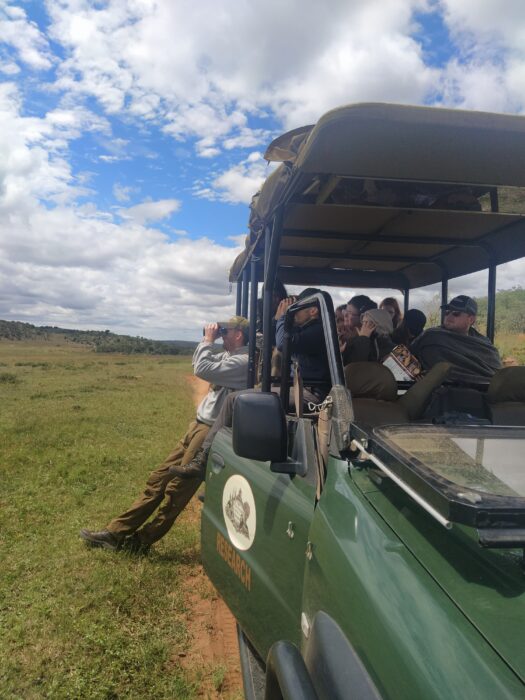
As part of your project, you will be heavily involved with the day to day field work conducted by the biomonitoring team.
Activities include, but are not limited to:
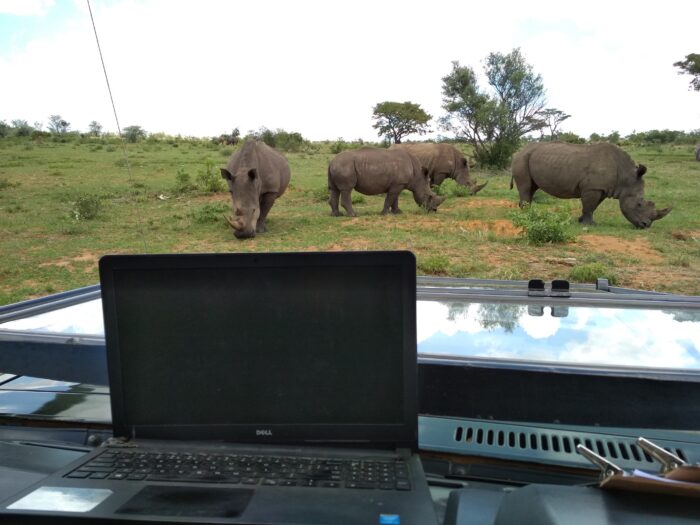
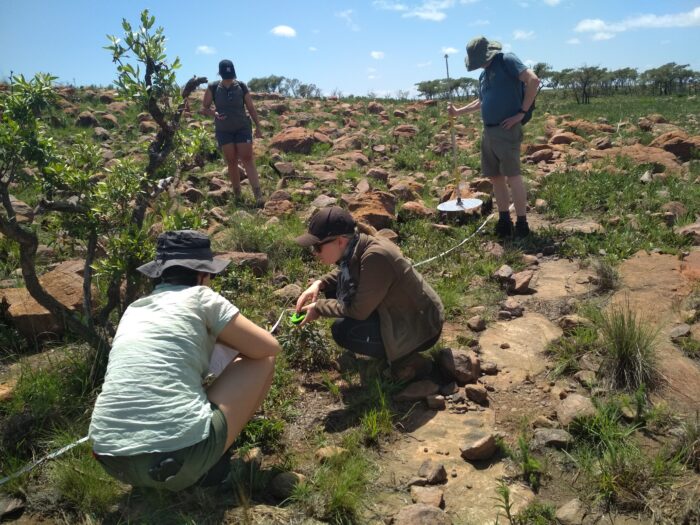

Participants are accommodated at the Research Camp, based on the reserve which boasts ten tents that sleep two to four people per tent in single beds, each tent also has lighting and electricity supply, so its basically ‘glamping!’. There are communal hot and cold showers and regular flushing toilets. There are communal facilities including a lecture room, dining area, entertainment area and large storage fridge. The centre also has access to Wi-Fi.
The camp is fenced off inside the boundaries of the reserve, surrounded by a grazing lawn so there’s a good chance you’ll find animals just outside your tent in the morning.
All meals are enjoyed together mostly in the outside dining area and sometimes inside on colder evenings. Three meals are provided daily on a self cook basis which are mostly prepared by the group in small teams. Evening meals and breakfast are enjoyed at the camp and lunch is normally brought into the field and had picnic-style in the bush.
Most evenings are spent at leisure in camp mostly outdoors at tables and benches or around a campfire.
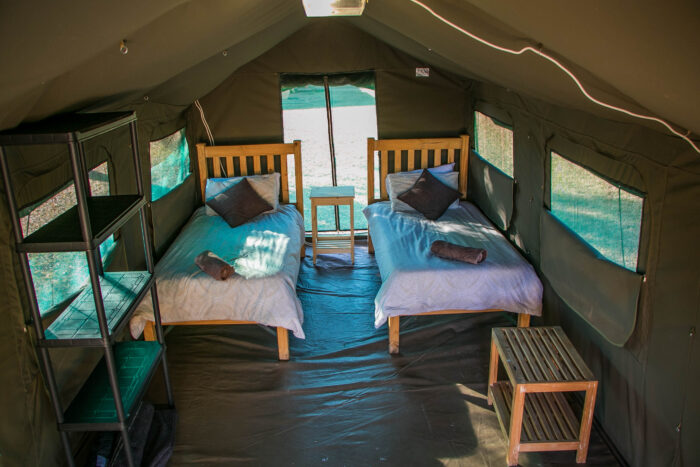
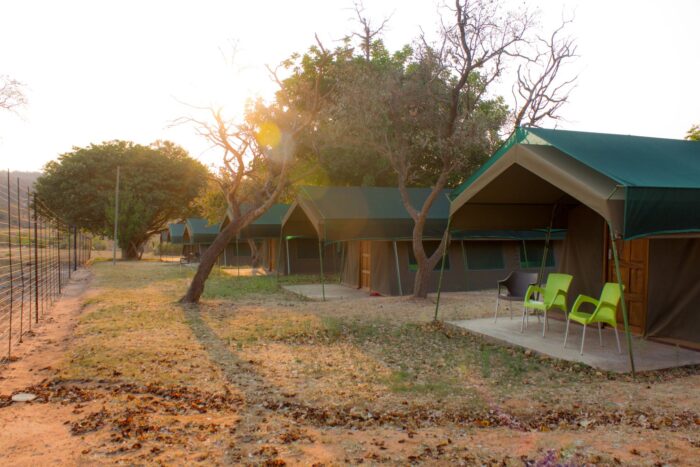
The biomonitoring team are usually in the field 6 days a week, so Sundays are usually used to stay in camp to do laundry, relax, watch documentaries, help with admin or go on a tour in the area.
The Vaalwater Township Tour
Horseback Safaris are also popular in the area – viewing wildlife while on an outride is a special experience
Swimming & hiking
A hike in safe neighbouring reserve followed by a swim at a secret natural swimming pool can also be arranged.
Available on request
If you have any questions, or if you’d like to find out more about this incredible adventure and create some unforgettable memories, just fill in the form below and one of our team will be in touch as soon as possible.
Follow us on social media